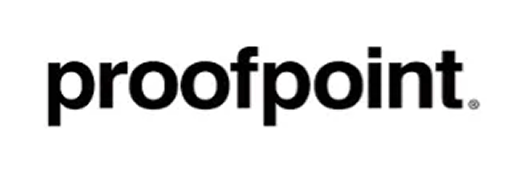Training and Certification in Cybersecurity, AI Governance, and Compliance
Safeshield delivers accredited online training in ISO 27001, ISO 42001 (AI), GDPR, SOC 2, DORA compliance, and more. Advance your career, pass your audit or train your team—on your schedule.




See Our Bestselling Courses
Explore the most popular training programs trusted by professionals in cybersecurity, compliance, and AI governance.

ISO/IEC 42001 Lead Implementer
The PECB ISO/IEC 42001 Lead Implementer training course is designed to prepare you to implement AI management system in accordance with ISO/IEC 42001. It provides you with ...
Delivery Format:
self-study, e-learning
Languages:
English, French, Spanish, Portuguese, Italian

ISO/IEC 42001 Lead Auditor
The PECB ISO/IEC 42001 Lead Auditor course empowers participants with the knowledge and skills essential for planning and conducting ISO/IEC 42001 audits based on ...
Delivery Format:
self-study, e-learning
Languages:
English, Spanish, Italian, Japanese

Lead Soc 2 Analyst
The PECB Lead SOC 2 Analyst training course equips participants with the knowledge and skills necessary to support organizations in establishing and implementing security ...
Delivery Format:
self-study
Languages:
English

ISO 9001 Lead Implementer
The PECB ISO 9001 Lead Implementer course aims to equip you with in-depth knowledge on ISO 9001 requirements, as well as the best practices and approaches used for ...
Delivery Format:
self-study, e-learning
Languages:
English, French, Spanish, Japanese
Browse Our Top Career Paths
Choose a path, explore your training options and take your next step towards certification

Artificial Intelligence Governance, Risk Management and Compliance
These courses focus on the implementation and auditing of AI frameworks and standards, including ISO/IEC 42001 and NIST AI Risk management Framework.
Cybersecurity
These courses cover risk management, threat detection, incident response, and security compliance. Ideal for IT security specialists, network administrators, compliance officers, and executives

Governance, Risk, and Compliance (GRC)
These courses cover corporate governance, risk assessment, compliance management, and internal controls. Ideal for compliance officers, risk managers, auditors, and executives.

Executive Management
These courses cover cybersecurity governance, risk management, incident response, and regulatory compliance. Ideal for current and aspiring CISOs.
The True Cost of a Security Breach*
*According to IBM's Cost of a Data Breach report 2024
Research from IBM and Ponemon Institute collected data from 604 companies and 3,556 data breaches
$4.88 M
(USD) The global average cost of a data breach in 2024
26.2%
Growth of the cybersecurity staffing shortage in 2024
70%
Percentage of organizations that experienced a significant disruption due to a breach
Lack of resources and expertise makes your small business vulnerable to financial loss, legal liabilities, and reputation damage. Implementing effective security measures can reduce risks and safeguard business continuity. Don't wait for an attack to happen, prioritize cybersecurity today.
Protect your business against cyber threats
Comply with regulations and standards
Comply with regulations and standards such as ISO 27001, SOC 2, GDPR, HIPAA, and PCI DSS to reduce risk, build trust with customers, and avoid legal and financial penalties. Compliance may take time and resources, but it is an investment in the business's long-term health and success.
A cybersecurity and compliance program ensures that your company's sensitive data is protected against unauthorized access and theft. This includes customer data, financial information, and other confidential business information.
Protect your and your customers' sensitive data
Improve your employee awareness
A cybersecurity and compliance program provides training and awareness programs for employees, ensuring they are aware of the risks and best practices for protecting company data. Take action now to educate your employees to reduce the risk of human error leading to a data breach.
A cybersecurity and compliance program uses advanced security technologies to detect potential threats early on, allowing for a quick response and mitigation of any damage caused. Show your customers that you value their privacy, and are committed to keeping their information secure.
Proactively detect cyber threats
Protect your company's reputation
A cybersecurity and compliance program will help you by ensuring that sensitive data is always kept confidential and secure. Neglecting to take action may result in data breaches, intellectual property theft, and brand damage. Don't wait for a breach to happen; take proactive steps to secure your company.
A cybersecurity and compliance program is crucial to reducing downtime caused by cyber incidents or system failures. A security breach can result in lost productivity and revenue, but with the right measures in place, you can minimize the impact of an attack and quickly resume operations.
Reduced downtime
Get a competitive advantage
Customers are more likely to trust a business that prioritizes security and privacy. By implementing effective security measures, you can demonstrate your commitment to protecting customer data and differentiate yourself from competitors. Don't wait for a breach to occur. Take action now to secure your business and gain a competitive edge.
Are you concerned about the security of your company's and customers' data? We can help ensuring that your business is compliant with industry regulations and security standards.
Our team of experts will work with you to develop a customized cybersecurity and compliance program that meets the unique needs of your business.

SafeShield offers a wide range of services, including the implementation of information security management system (ISMS), Gap analysis, risk assessments, vulnerability scans, penetration testing, security audits, and incident response planning.
ISMS Implementation
We specialize in implementing effective information security management systems tailored to meet the unique needs of your business. Our team of experts will work closely with you to identify potential security risks and develop a comprehensive plan to mitigate those risks.
Risk Assessments
Our team of experts will perform a comprehensive analysis of your organization's information security practices and infrastructure to identify areas of risk. We will then provide you with a detailed report outlining our findings and recommendations for mitigating those risks.
Vulnerability Scans
Our advanced scanning tools to identify vulnerabilities within your company's infrastructure, including servers, networks, and applications. We then provide you with a detailed report outlining any identified vulnerabilities and recommendations for remediation.
Penetration Testing
Our penetration testing service can help you identify potential vulnerabilities in your company's systems and networks. We use a variety of techniques and tools to ensure that we can uncover any vulnerabilities that could put your company's data at risk.
Security Audits
Our team of experts will perform a comprehensive audit of your company's security practices, policies, and infrastructure to identify any vulnerabilities and potential risks. We will provide you with a detailed report outlining any identified security issues and recommended remediation steps.
Incident Response Planning
We will work with you to develop a comprehensive incident response plan tailored to your company's specific needs and requirements. We will identify potential scenarios and develop protocols and procedures to ensure a timely and effective response.
Business Continuity Planning
We can help you with the planning and preparation for recovering from a security incident or disaster, including backup and recovery procedures and contingency planning.
Cybersecurity Training for Executives
It's important that key decision-makers within an organization have a solid understanding of cybersecurity risks and how to mitigate them. We can help you in the development of the executive security training program.
Information Security Training
iFactum will work with you on the design of training and awareness programs to educate employees on best practices for security and compliance.
Supply Chain Risk Management
iFactum can help you ensure that third-party vendors and suppliers are also complying with security and compliance requirements, as they can introduce risk to an organization's systems.
Continuous Compliance Monitoring
Our team of experts will help monitor ongoing compliance with regulations and standards to ensure that an organization remains compliant even as requirements change over time.
Compliance Management
iFactum can assist your organization with maintaining compliance with relevant regulatory requirements and industry standards, such as ISO/IEC 27001, CSA CCM, SOC 2, GDPR, HIPAA, or PCI-DSS.
Our Technology Partners

Okta

Crowdstrike

Proofpoint

Ironscales

Trend Micro

SentinelOne

Bitdefender

Webroot

IBM Security

Halo Security

Pillr

OpenVPN

Trust Cloud

Skyflow

